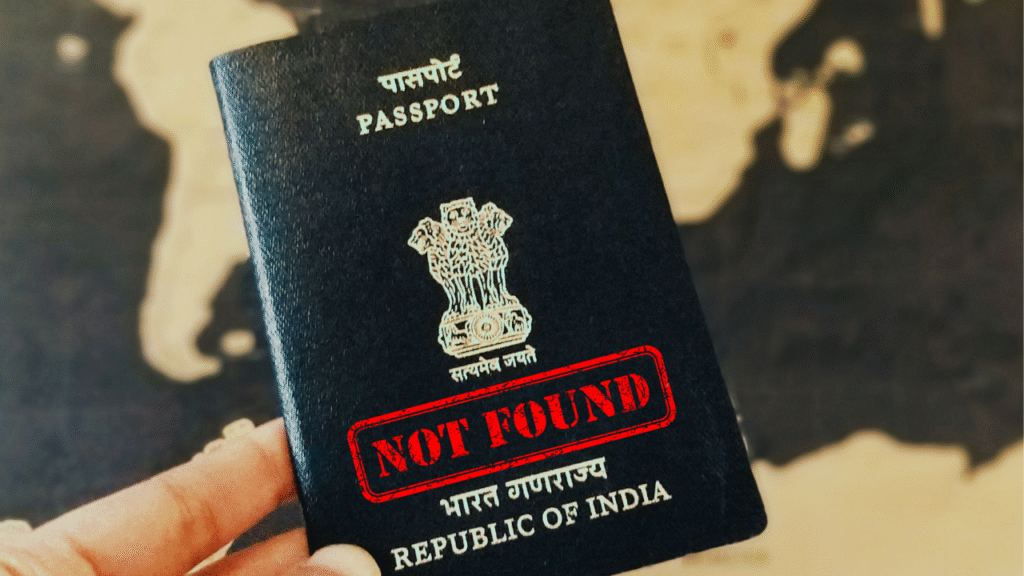Losing your passport in a foreign country is one of the most stressful things that can happen while travelling — especially when it’s your Indian passport, which serves as your primary proof of citizenship and identity. Whether it slipped out of your pocket or was stolen in a crowd, don’t panic.
What you do in the first few hours after discovering the loss can make all the difference. Follow this step-by-step guide to regain control, protect your identity, and find your way back home safely.
In this Article
1. Report the Loss Immediately to Local Police
Your first course of action is to visit the nearest police station in the country you’re visiting. File a formal report about the lost passport, and obtain a copy of the police complaint. This document is critical — you’ll need it to apply for a new passport or an emergency travel document at the Indian Embassy.
Don’t delay — most embassies will not proceed with assistance unless you submit the police report.
Check Out: Indian Passport Expired in the USA? Powerful Tips to Avoid Legal & Travel Issues
2. Locate and Contact the Nearest Indian Embassy or Consulate
Use the official website of the Ministry of External Affairs to find the contact details of the nearest Indian Embassy or Consulate. Reach out via phone, email, or in person. The embassy staff is trained to handle lost passport situations and will guide you through the application process for a replacement.
They can help you obtain either:
- A Reissued Passport (if you’re staying abroad for a while), or
- An Emergency Certificate (EC) — a temporary one-way travel document that allows you to return to India
3. Prepare and Submit Your Application
Depending on the type of document you’re applying for, you’ll need to prepare the following documents:
- Police Report (original and photocopy)
- Proof of address and date of birth (Aadhaar, PAN, Driving License, etc.)
- Annexure F – An affidavit explaining how the passport was lost
- Self-attested copies of your lost passport’s first and last page (if available)
- Seizure Memo or Emergency Certificate, if issued
- Passport-size photographs (as per embassy specs)
If you don’t have a copy of your lost passport, try to recall and provide details like the passport number, date of issue, or place of issue to assist embassy officials.
4. Reapply for Your Visa
If your original visa was stamped inside the lost passport, you’ll need to reapply for a visa from the concerned country’s embassy or immigration department.
Documents generally required include:
- Your new passport or EC
- A copy of your lost visa (if available)
- Police report
- Passport photos
Processing times vary by country, so start this step as soon as possible.
5. Reschedule Your Flight and Notify the Airline
Once your travel documents are reissued, get in touch with your airline. Explain your situation and submit supporting documentation, such as the police report and a copy of the Emergency Certificate. Some airlines may offer flexible rebooking policies or waive change fees in such cases.
Check Out: Most Travelers Pick the Wrong Economy Seat—Here’s 12 Ways to Find the One That Feels First
6. Inform Your Travel Insurance Provider
If you’ve purchased travel insurance, you may be able to claim reimbursement for:
- Emergency passport reissue or travel documents
- Trip delay or missed connections
- Theft of personal belongings, if applicable
To initiate a claim, provide your insurer with:
- A copy of the police report
- Receipts for documentation expenses or travel rescheduling
Stay Prepared and Stay Calm
Losing your Indian passport while travelling abroad can feel overwhelming, but with the right steps, you can manage the situation and safely return home. Always carry photocopies or digital versions of your passport and visa. Save the contact information of Indian embassies in the countries you visit, and consider keeping a backup document kit in your luggage.

